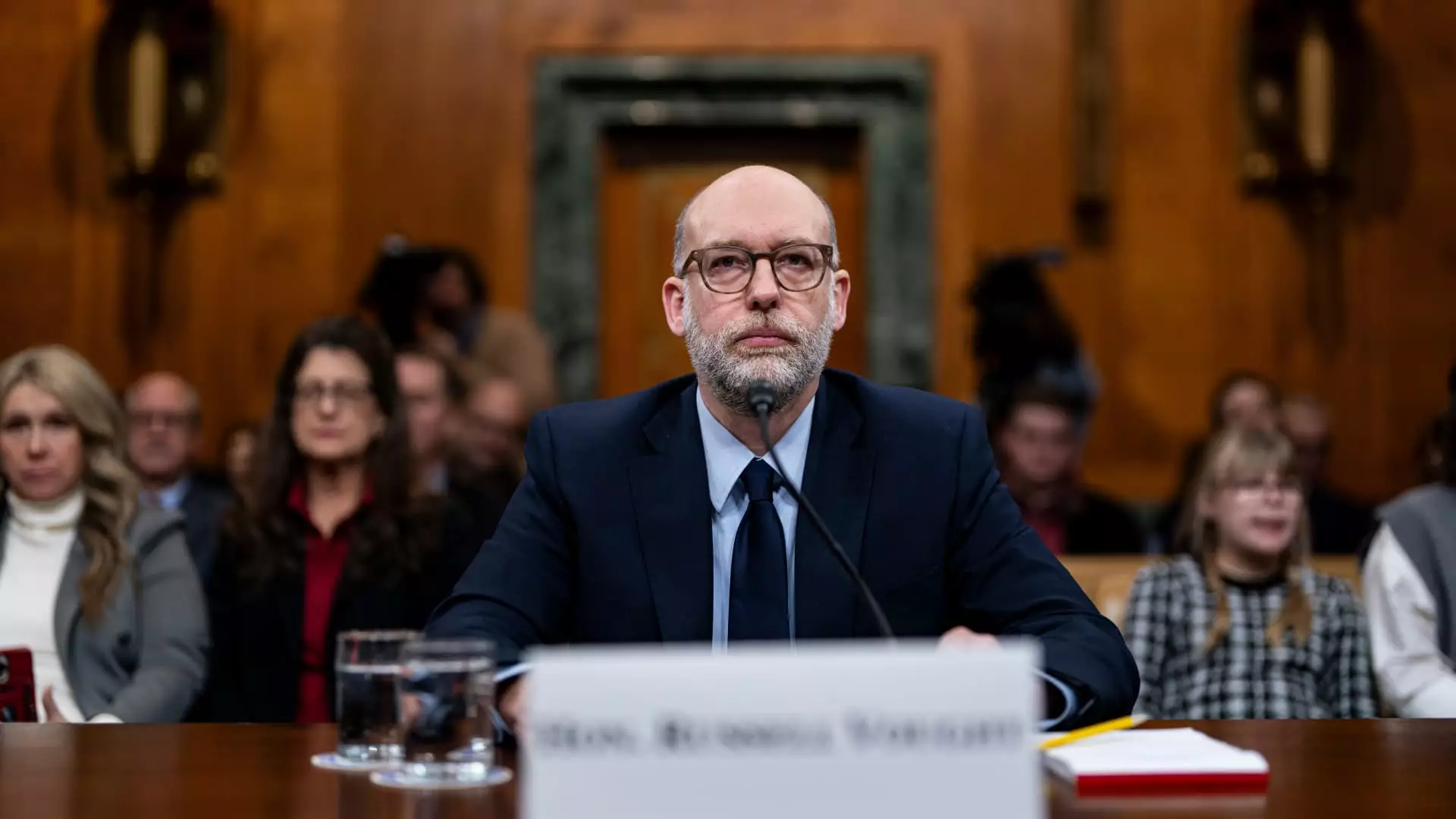The recent confirmation of Russell Vought as the budget director by the Republican-controlled U.S. Senate marks a significant turning point in the management of government funding. Vought’s ascension to this pivotal role is not just a routine appointment; it reflects a broader ideological shift within the Trump administration towards limiting congressional authority over taxpayer allocations. This ideological battle that unfolded during the confirmation process highlights the deepening divide between the two major American political parties.
Vought’s confirmation was secured with a narrow 53-47 vote after a prolonged and contentious overnight session. Democrats vehemently opposed his nomination, branding him a “dangerous far-right ideologue.” They accused Republicans of hastily endorsing Trump’s nominee without adequate scrutiny, resulting in a political maneuver that prioritizes party loyalty over bipartisan governance. Vought’s prior tenure leading the Office of Management and Budget during Trump’s first term raised eyebrows among lawmakers across the aisle, particularly due to his perspectives on the 1974 congressional budget act, which he claimed was unconstitutional. Such assertions inevitably signal a looming confrontation over the balance of power in government funding.
Concerns Over Presidential Authority
Vought’s critical stance on preventing presidents from unilaterally blocking approved funding—known as “impoundment”—struck a nerve with both sides of the political spectrum. His views not only challenge established legislative norms but also raise pertinent questions about the extent of executive power. This theme of unilateral action intensified following a controversial memo from the White House Budget Office that temporarily froze billions in federal funds—an action that was subsequently contested by a federal judge. While the administration defended the freeze as a measure to align assistive funding with Trump’s broader policy goals, the backlash underscores growing apprehension over potential executive overreach in future funding decisions.
Democrats have made efforts to connect Vought’s role with various contentious actions taken during the Trump presidency, citing hardships inflicted on federal programs and agencies. Senate Democratic leader Chuck Schumer conveyed this sentiment fiercely, suggesting that Vought’s influence could lead to detrimental outcomes for everyday Americans and their access to essential services. The concerns encompass a spectrum of issues, including the demoralization of federal employees and the potential curtailment of essential government functions.
In stark contrast to the Democratic narrative, Republican leaders rallied around Vought, referring to his extensive experience and commitment to fiscal responsibility as vital assets. Senate Majority Leader John Thune expressed confidence in Vought’s ability to identify and eliminate government waste. This counter-narrative reveals a deeper ideological commitment within the Republican party to recalibrate government spending and to advocate for a leaner government structure, prioritizing efficiency over expansion.
As Russell Vought prepares to assume his role as budget director, the implications of his confirmation extend far beyond administrative leadership. The unfolding political drama encapsulates the ongoing ideological struggles within American governance, underscored by conflicting views on executive power and congressional authority. This pivotal moment sets the stage for future battles over federal funding, with Vought at the helm and a divided Congress watching closely.



Leave a Reply